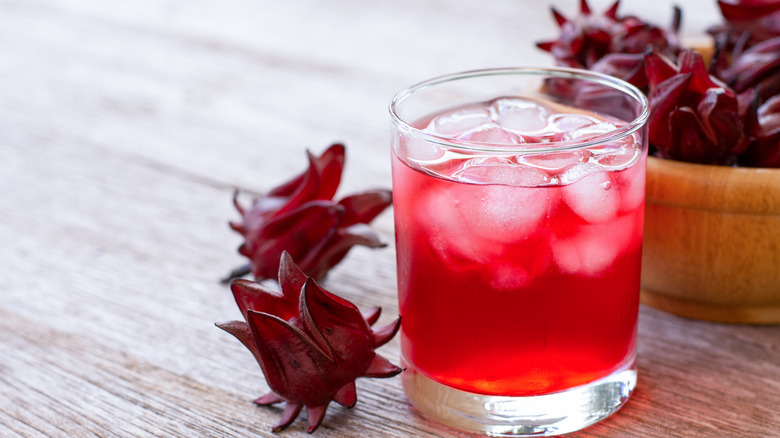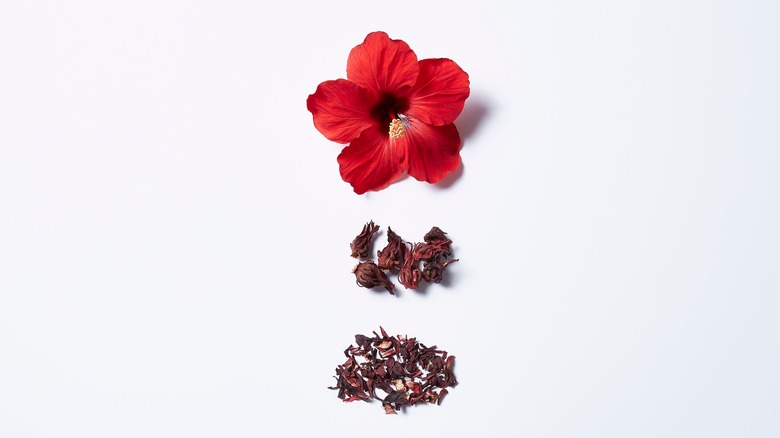Why You Should Drink Hibiscus Tea After A Workout
Hibiscus flowers aren't just for making Hawaiian shirts look fly. We're drinking them now! That's right, we're taking plant medicine.
Once upon a time, it was common practice for herbalists and western doctors to work side by side. But that came to an end around the turn of the 20th century. In his book Planetary Herbology, Clinical Herbalist Michael Tierra explains how in 1907, Andrew Carnegie and John Rockefeller used their financial influence to push allopathic medicine (that is, treating disease with pharmaceutical drugs and surgery), and with that came the demonization of plant medicine and holistic healing.
Holistic healing, as defined by Harvard Catalyst, is health viewed from the perspective that people function as complete, integrated units, rather than separate parts. As such, our good health is dependent on everything from what we eat and drink to how we exercise and sleep to the state of our interpersonal relationships and how we manage stress.
Today there's a resurgence of interest in holistic healing and plant medicine, with more people using a healthy combination of western medicine and traditional medicine to maintain their physical and mental health. The benefit of consuming hibiscus after a workout seems to be on the long list of things modern herbalists and western science can agree on.
How hibiscus can help after a workout
A hard workout can really take a toll on the body. Exercise-induced oxidative stress and muscle inflammation are fairly common conditions in athletes, post-sweat. However, according to a study published in the International Journal of Environmental Research and Public Health, both of these symptoms can be improved with the help of vitamin C and antioxidants which are found in abundance in the petals of hibiscus flowers.
Another study published in the Journal of Dietary Supplements found that soccer players who consumed hibiscus tea for six weeks had reduced levels of malondialdehyde in their blood — a marker of muscle damage. If you're encouraged by these findings, try brewing a cup of hibiscus tea after your next run and pouring it over ice. Not only is it cool, sour, and refreshing, but it might just save you from a couple of days of sore legs!
Other health benefits of hibiscus
The benefits of hibiscus don't stop there. According to the Cleveland Clinic, adding more hibiscus to your diet could lower both blood pressure and cholesterol — two of the leading causes of heart attack and stroke. While a daily cup of hibiscus tea can't replace your blood pressure medication, it certainly can promote good health and help prevent disease. While the jury is still out on whether tea of hibiscus has these benefits, studies have indicated that hibiscus extract has been linked to weight loss and the promotion of liver health.
While hibiscus is generally considered safe, it is always good practice to consult your doctor before introducing any new herbs into your diet to be sure you don't have any contraindications. If you find it works for you, let hibiscus be the first of many plants you incorporate into your diet to give you good health!



